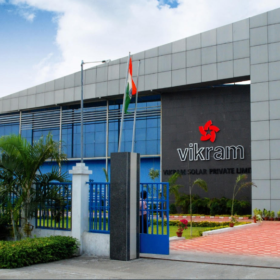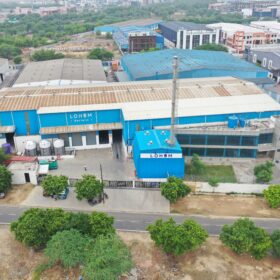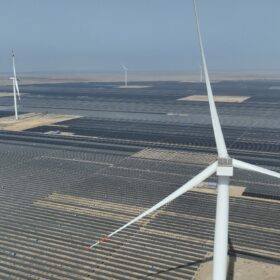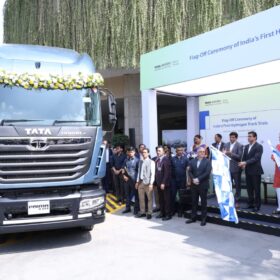Ind-Ra has analysed Avaada Solar Energy’s standalone credit profile and upgraded the rating of its senior project term loans. The sponsor injections other than equity, such as fully compulsorily convertible debentures (FCCD), are subordinated to the rated senior project loan and have not been considered as additional debt in Ind-Ra’s analysis.
The upgrade reflects the project’s performance in line with Ind-Ra’s projections and the presence of a payment security mechanism for 100% of its offtake capacity. The rating is anchored by the presence of a long-term fixed-tariff power purchase agreements (PPAs) with the distribution companies of Karnataka, an established track record of timely payments from the offtakers, and adequate internal liquidity to mitigate any short-term cash flow mismatches.
Key rating drivers
Healthy operational and financial performance, in line with Ind-Ra’s projections. ASEPL has demonstrated a stable operating track record of 21 months since its commissioning. The project’s plant load factor (PLF) performance in the 12 months ended November 2020 was 25.3% (FY20: 25.8%), higher than P90 estimates of 24.61%. Also, the machine and grid availability during the same time period was consistently above 99%. ASEPL’s future performance in line with P90 level is a key monitorable.
Based on 9MFY21, Ind-Ra expects ASEPL to achieve a debt service coverage ratio (DSCR) of 1.21x as against Ind-Ra’s projection of 1.17x in FY21. The project’s operational revenue was INR903.55 million in FY20 (FY19: INR126.01 million with an EBITDA margin of 89%. (84%). On 31 March 2020, the project had a contingent liability of INR50 million of bank guarantee. At end-January 2021, the project did not have any contingent liability.
Timely revenue realisation. ASEPL has signed 25-year PPAs with three distribution companies of Karnataka – Gulbarga Electricity Supply Company Limited (GESCOM) and Mangalore Electricity Supply Company Limited (MESCOM) and Chamundeshwari Electricity Supply Corporation, for the procurement of solar power to be generated from the solar power project. The applicable tariff is INR2.92/kWh for the entire term of the agreement.
All the counterparties have established a letter of credit (LC) equivalent of one-month billing as a payment security mechanism. The LC established for 100% of the offtake capacity largely mitigates the receivable risk. Non-renewal of LC would be a credit negative During 8MFY21, ASEPL received payments within an average 30 days from the date of invoice (CESCOM: 37 days; GESCOM: 46 days; MESCOM: 2 days).
Liquidity indicator – adequate. The project has standard project finance features, including a cash flow waterfall, a debt service reserve to cover peak interest and principal repayments for the ensuing annual debt servicing of two quarters, and a major maintenance reserve to be created from fifth year of commissioning. The project’s debt service reserve of INR347 million and free cash of INR349 million (on 14 December 2020) can together service the debt obligations for up to about 12 months (both principal and interest). Although the cash balance is subject to distribution post the lender’s approval, the presence of considerable cash in the trust and retention account provides comfort during any adverse event.
Furthermore, the company has a sanctioned working capital limits of INR130 million, which are not being used as fund-based working capital, but as payment security for annual solar park charges. Ind-Ra considers the overall liquidity available in the project as adequate. The company did not avail the Reserve Bank of India-prescribed debt moratorium as it has been receiving timely payments from the counterparty.
Long-term offtake secures cash flows. The presence of long-term agreements and scheduling of solar power on must-run basis assure cash flows to the project and largely mitigates the revenue risk. Also, the tariff is competitive compared to average power purchase cost of the discoms.
Minimum technology risk. The plant uses solar modules with fixed tilt technology. Polycrystalline-based solar module technology has an operational record of over 30 years; hence, technology risks are minimal. Besides, the presence of a Tier-1 solar panel supplier and equipment warranties mitigates the technology risk.
Favourable debt structure. The debt is repayable in 74 structures quarterly instalments commencing from 30 June 2020 with a moratorium period of one year from the scheduled commercial operations date. The interest rate is fixed with a reset clause after 10 years from the first disbursement. There is a cash sweep clause for 50% of the excess cash above a debt service coverage ratio of 1.20x after four years of the commencement of operations. The financial covenants for the rupee term loans are a) DSCR within 20% deviation from the banking base case and b) debt to equity of 3:1.
In-house operations and maintenance. The operations and maintenance for the full capacity of 150MW is being carried out through in-house teams. Efficient operations of the plant, within projected costs, are of paramount importance to the rating. Any significant increase in O&M costs from Ind-Ra’s estimates will impact the rating.
Moderate sponsor profile; experienced group. ASEPL is fully owned by Avaada Energy Private Limited (AEPL ‘IND A-’/Stable). AEPL is part of Avaada group, which is a developer of renewable energy projects in India and is promoted by Vineet Mittal, who had spearheaded the renewable energy business of Welspun Energy Private Limited, prior to its sale to Tata Power Renewable Energy Limited (‘IND AA’/Stable). Under his leadership, Welspun Energy had successfully developed and monetised an operational clean energy portfolio of about 1.2GW of solar power projects. These projects, supported by 25-year PPAs with distribution companies, were implemented and executed in a span of five years without any cost or time overruns.
Moderate counterparty profile. MESCOM has consistently maintained a low gap between the average cost of supply (ACS) and the average revenue realised (ARR) (FY19 INR0.10/kWh; FY18: INR0.05/kWh; FY17: INR0.02/kWh). However, for the same time period, GESCOM had an inconsistent ACS-ARR gap and CESCOM witnessed an erosion in surplus. Furthermore, GESCOM and CESCOM exhibit excessive subsidy dependence on state. Ind-Ra notes that Karnataka Electricity Regulatory Commission is consistent in issuing tariff orders.





